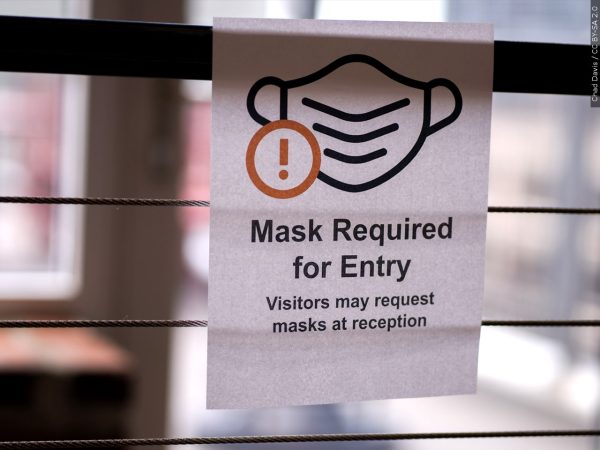
Though the quarantine and social isolation of the COVID-19 pandemic are years behind, many on the GCSU campus still experience its lingering effects. From shifts in classroom dynamics to lasting changes in mental health, the pandemic’s effects stretch beyond the initial shutdown.
In the 2022 CNBC article “Mental health damage from Covid could last a generation,” Holly Ellyatt shares how mental health challenges were brought on by the pandemic and may last for years.
“Many psychologists and psychiatrists have reported an influx of people seeking mental health support during the pandemic, with the unprecedented global health crisis causing an increase in anxiety and depression as well as exacerbating existing mental health conditions,” Ellyatt said.
The pandemic disrupted nearly every aspect of daily life, leaving individuals to navigate a new normal. For students, this meant adapting to drastic changes in their academic and social routines while dealing with the stress of a global crisis.
The isolation that accompanied the pandemic was especially challenging for students who were affected during the most developmental years of their lives. For many, the quarantine forced a pause in their fast-paced, social lives.
“I feel my social skills would have been a little better if I didn’t lose that year and a half of not seeing anyone,” said Laura Sabine, a sophomore public health major.
According to Ellyatt, psychologists believe the mental health impact of COVID-19 could be felt for years. Many people missed milestones and moments that can not be re-lived.
“This stage in my life was very difficult for me,” said Catherine Stephens, a sophomore public health major. “No friends to talk to for days, no teachers or faculty to ask questions to, limited human interaction and teaching myself curriculum even though I’m a very visual learner.”
Many students struggled with maintaining a routine, leading to a decline in academic performance and overall well-being. The absence of classroom discussions and peer collaboration further contributed to feelings of isolation and detachment from their studies.
When schools switched to distanced learning, many students lost motivation and found it difficult to stay on track. Assignments and tests were open resources and many students saw no reason to put in real effort.
Without the structure of in-person classes, procrastination became more common and the lack of direct interaction with teachers made it more difficult to stay engaged.
“I feel that I would have had a better education if it wasn’t online,” Sabine said. “I remember getting very lazy with little motivation.”
Since the COVID-19 pandemic, students have focused on getting their lives back in order by rebuilding their social lives, motivation and overall well-being.
Destiny Cavener, a junior graphic design major, believes that the isolation period during the pandemic negatively affected her social skills, but that the end of the pandemic has brought her some positive changes.
“I have become more motivated,” Cavener said. “Especially when it comes to work and school-related activities.”
Despite the COVID-19 pandemic’s challenges, students have shown resilience. While the pandemic altered the college experience, it also highlighted students’ ability to persevere and redefine success in a changing world.
“I am now a flexible learner,” Stephens said. “I have come to peace with my alone time and I am now heavily interested in both mental and physical health careers.
Like Stephens, many students have taken the challenges of the pandemic as an opportunity to grow and redefine their goals. The shared experience of navigating isolation, uncertainty and academic hurdles has left a lasting impact, pushing this generation to value adaptability more than ever.
For many, it became a turning point that shaped their priorities and future aspirations.
“The pandemic wasn’t so horrible in my opinion and will greatly influence the future of my life and career,” Stephens said.

